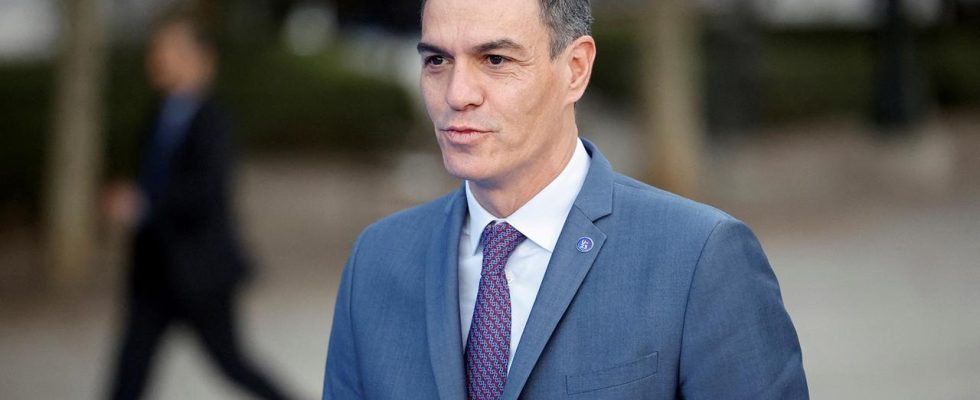Spain’s acting head of government Sánchez has apparently found the necessary majority in parliament to be confirmed in office. After the Catalan separatists, the Basque Nationalist Party has now also declared that it supports him.
Almost four months after the parliamentary elections, the way for the formation of a new government in Spain is apparently clear. Acting Prime Minister Pedro Sánchez can not only count on the support of Catalan separatists, but now also on the help of the Basque nationalist party PNV.
She said she would support Sánchez’s re-election. This means that the party leader of the socialist PSOE has secured a majority in the 350-strong parliament. The government is expected to be formed in the coming days.
Formation of government the PP failed
Sánchez has been in office since 2018 and has led a minority government since 2020. The last election led to an unclear majority in the Spanish parliament. The conservative PP became the strongest force, and opposition leader Alberto Núñez Feijóo was appointed by King Felipe VI. initially tasked with forming a government. However, Feijóo failed to get enough supporters behind him.
PSOE reaches agreement with Separatist Party Junts
The king then commissioned Sánchez to form a government at the beginning of October. After the election in July, he had already formed a minority coalition with the left-wing Sumar. On Thursday, Sánchez’s party managed to reach an agreement with the Catalan separatist party Junts. In return for cooperation, the PSOE promised an amnesty for around 1,400 convicted separatists. The former head of government in Catalonia, Carles Puigdemont, would also be the beneficiary of a penalty waiver.
The Junts politician, who lives in exile in Belgium, said that they would talk to the socialists about a new referendum on Catalan independence. At the beginning of November, the PSOE had already agreed to work together with the Catalan separatist party ERC. Observers fear that Spain is facing a new phase of political instability.
Majority against remission of sentences
The planned amnesty is highly controversial in the country and in the European Union. In a September survey, around 70 percent of respondents spoke out against it – 59 percent of whom were socialist supporters. In addition, the highest supervisory body of the Spanish judiciary, the Consejo General del Poder Judicial, has expressed serious concerns about the project. EU Justice Commissioner Didier Reynders also takes this line and has already communicated this to the government in Madrid.
The separatists’ opponents focus their criticism on Puigdemont. He declared Catalonia independent in 2017 after a controversial referendum. The central government then accused him of rebellion and embezzlement of public funds. The Constitutional Court saw a breach of the constitution.
The Catalan regional government was stripped of its power by the central government and Puigdemont was put on a wanted list. He then went abroad. At the time, Sánchez had vowed to bring Puigdemont to justice.
Tumults in front of the PSOE party headquarters
On Thursday, unknown people shot the former head of the conservative PP party in Catalonia, Alejo Vidal-Quadras, in the face. It is not yet known whether the attack could be related to the formation of a government. The formation of a government has deepened the differences between the two camps.
On Monday evening, around 4,000 people demonstrated in front of the PSOE party headquarters in Madrid and there were tumults. They called for Sánchez to be thrown in prison and claimed the “right of Spaniards to protect Spain.” Sánchez wrote on X: “The attack on the PSOE office is an attack on democracy and on everyone who believes in it.”

